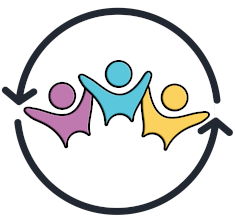In the modern workplace, career success is increasingly tied not just to technical ability, but also to strong social skills. Developing these skills is essential for effective job performance and professional advancement. Social skills encompass a variety of interpersonal abilities, such as effective communication, empathy, conflict resolution, and teamwork. These skills are critical in various scenarios: from job interviews to project collaborations, and managing relationships with clients, colleagues, and supervisors. When individuals master social skills, they open doors to a wider range of career opportunities and improve their potential for upward mobility.
One key area where social skills influence career success is job interviews. An interview is a chance for candidates to showcase not only their qualifications but also their personality and ability to connect with potential employers. Job candidates with well-developed social skills are often better able to convey their strengths confidently, listen to interviewers’ questions attentively, and respond in a way that reflects understanding and enthusiasm. Additionally, employers are increasingly seeking individuals who can represent their organization positively. Candidates who communicate well and demonstrate empathy and adaptability make stronger impressions, increasing their chances of securing the position.
Furthermore, social skills greatly impact workplace dynamics. When individuals work well with others, show empathy toward colleagues, and listen actively, they become valuable members of any team. They help to foster an inclusive, positive work culture where diverse ideas and perspectives are respected, which is essential for collaboration and productivity. Employers value employees who can handle conflicts diplomatically and build constructive relationships across departments. Strong interpersonal skills also help individuals establish themselves as reliable team players, a quality that can lead to leadership opportunities.
Capability Connections’ social skills training programs equip participants with these essential abilities, building confidence to navigate professional environments effectively. Our program covers a range of skills, including understanding nonverbal communication, responding appropriately in various workplace situations, and practicing empathy and listening. By mastering these skills, individuals increase their chances of professional success, whether in entry-level roles or as they advance in their careers. Through these targeted lessons, participants are not only prepared for immediate success but are also set up for long-term professional growth and career fulfillment.
Why Social Skills Matter in the Workplace
In nearly every profession, effective social skills are as valuable as technical expertise. These interpersonal skills are vital in fostering collaboration, maintaining positive work relationships, and enhancing overall productivity. For instance, employers frequently prioritize candidates with strong social skills, as these individuals are more likely to engage positively with coworkers, clients, and management. Employees who can communicate clearly, listen actively, and demonstrate empathy promote a more cohesive workplace culture, which ultimately benefits the organization as a whole.
Social skills, such as effective communication, are crucial in team settings where group projects and collaborative problem-solving are common. When employees communicate their ideas clearly, listen to input from others, and understand each other’s perspectives, it reduces misunderstandings, increases efficiency, and leads to better team outcomes. Good communicators can convey complex information simply, ensuring that all team members are on the same page and working toward the same goals. For Capability Connections participants, mastering these skills is particularly beneficial, as they learn to adjust their communication style to suit different workplace situations and individuals.
Another essential social skill in the workplace is empathy. By understanding the perspectives and feelings of others, employees foster an environment of mutual respect. Empathy helps employees recognize and accommodate the needs of their coworkers, creating a more supportive atmosphere. In workplace interactions, empathy allows individuals to navigate conflicts with understanding, helping to resolve issues without escalation. When employees approach conflicts with empathy, they can identify underlying concerns and address them constructively. This skill not only strengthens relationships but also enhances problem-solving and helps maintain harmony in the workplace.
Social skills are also important for building professional relationships with supervisors and clients. Employees who can establish trust and rapport are better positioned to grow in their roles, gain mentorship opportunities, and even advance into leadership positions. Positive relationships with supervisors can result in more meaningful performance feedback, support for career advancement, and new opportunities within the organization. For individuals looking to excel in customer-facing roles, social skills are indispensable. Establishing connections with clients through active listening, clear communication, and empathy enhances customer satisfaction and builds loyalty, benefiting both the employee and the company.
Capability Connections’ social skills training ensures that participants are well-prepared to meet these workplace demands. By teaching skills like effective communication, empathy, and teamwork, we help individuals build the foundation for lasting career success. Through our training, participants become equipped to create positive interactions in their professional lives, setting the stage for growth and fulfillment in any career path they pursue.
Expanding on Professional Communication, Empathy, and Self-Expression
At Capability Connections, our mission includes preparing individuals not only for social success but also for thriving in professional environments. A core focus is on three critical skills—effective communication, empathy, and self-expression—each of which plays a distinct role in workplace success. Together, they form the foundation for strong professional relationships and career growth, fostering a work culture of respect, collaboration, and productivity.
- Effective Communication: Good communication is more than just talking; it involves clear, purposeful expression, listening, and adjusting one’s message to the audience. In professional settings, effective communication allows employees to convey their ideas concisely, understand others, and collaborate efficiently. Capability Connections’ training on communication teaches individuals how to articulate thoughts in a way that resonates with colleagues and supervisors. By mastering techniques for both verbal and nonverbal communication, participants learn how to present their ideas confidently and engage in constructive dialogue.
- Empathy: The ability to empathize with others is a critical component of professional relationships. Empathy fosters a respectful workplace environment where individuals feel valued and understood. Capability Connections emphasizes empathy through real-life scenarios and exercises, enabling participants to better appreciate diverse perspectives. In practice, empathetic employees are more likely to build lasting relationships, resolve conflicts amicably, and support each other’s growth.
- Self-Expression: Self-expression in the workplace involves more than simply stating one’s needs; it’s about doing so respectfully, clearly, and in a way that aligns with workplace norms. Capability Connections focuses on teaching individuals how to express themselves confidently, helping them communicate needs, boundaries, and preferences effectively. This skill reduces miscommunication and helps individuals navigate professional situations with confidence, reducing the likelihood of conflicts and misunderstandings.
Our program not only teaches these skills but also provides participants with strategies for implementing them in a variety of workplace settings. By enhancing communication, empathy, and self-expression, we empower individuals to create meaningful professional connections, overcome workplace challenges, and achieve lasting career success.



